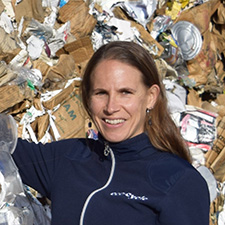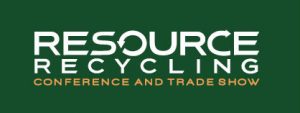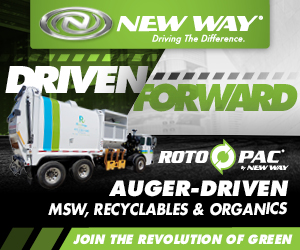A warm welcome back to “Women in Circularity,” where we shine a light on women moving us toward a circular economy. This month, I connected with a national recycling expert who brings expertise in best-in-class recycling operations and policies to Colorado and beyond: Kate Bailey. Kate is the policy and research director of Eco-Cycle with over 20 years of experience in the field.

Kate Bailey
What was your first job in the field and how did it transform into a career?
My work-study job in college was to collect cans, paper and other recyclables from faculty offices around campus. It gave me a firsthand look at recycling operations and I haven’t looked back since. My degree is in environmental studies with a minor in economics, so working on recycling policy is a perfect fit. What I really appreciate about this work is being able to help promote a simple, everyday action that makes a world of difference across so many environmental and social issues. Recycling, when done right, can reduce climate pollution, protect our clean air and water, strengthen local economies and supply chains, reduce environmental injustices and more – all with one simple action we can each do, every single day.
Your nonprofit offers a wide range of circular economy services to the local community. Can you briefly describe them?
Eco-Cycle has over 45 years of hands-on experience building zero waste communities. I’m proud to be part of Eco-Cycle’s mission to innovate, implement and advocate for local and global zero waste solutions to foster a more regenerative, equitable and climate-resilient future. We are a veritable ‘jack of all trades’ when it comes to circular economy services and engage every sector of the community. Each year, we process more than 50,000 tons of recyclables through our best-in-class MRF and recycle more than 20 different types of hard-to-recycle items such as electronics, mattresses and solar panels at our Center for Hard-to-Recycle Materials (CHaRM). We provide diversion services to hundreds of local businesses and offer educational field trips to our community’s K-12 schools. Over the years, we have trained over 55,000 people in zero waste and engaged over 1,000 residents as Eco-Leader volunteers. We also advocate for local, state and national policies for a zero waste future and have pioneered carbon farming and other nature-based solutions to reduce climate pollution. It’s work I love.
On a larger scale, how do you personally help other communities in their efforts to become zero waste?
Right now, I am thrilled to be leading a producer responsibility policy for packaging and paper in Colorado, HB22-1355, which will provide convenient, equitable recycling to all Colorado residents at no charge and help build more resilient domestic supply chains using recycled materials. In 2019, I led the adoption of a $100 million state grant program to invest in zero waste infrastructure and programs. I have also helped communities adopt universal recycling programs, expand recycling to all businesses and apartments, reduce plastic pollution and integrate waste-reduction programs into their climate action plans.
Learn more in person
Kate Bailey will be participating in a panel focused on the relationship between chemical recycling and local collection programs at the 2022 Resource Recycling Conference in August in Austin, Texas. See full details on the session lineup and get registered today.
I am also one of the founding members of the Alliance of Mission-Based Recyclers (AMBR), which works to identify, model and champion authentic recycling solutions to reduce plastic consumption and pollution. Through multi-stakeholder dialogues, environmental coalitions and state and national policies, AMBR works to eliminate problematic plastics, scale-up plastics recycling where it can work and refute false solutions like plastics-to-fuel.
In your opinion, what is a vital disruptor to the take-make-waste cycle?
The passion behind the zero waste lifestyle movement is inspiring, but we need to go beyond the individual mindset and push for systemic change. The real difference comes when we use our voice and our influence to make change at our workplace, our school, our church, in city council meetings and for state legislation. With unprecedented supply chain disruptions, climate change and plastic pollution, there has never been a more important time for transformative policy solutions.
What do you do outside of work to maintain your passion for circularity?
To be honest, I take plenty of downtime from my sustainability work to recharge. I get a lot of inspiration from other movements and leaders outside of our industry and try to apply those same tools and lessons to zero waste solutions. Brené Brown is an absolute go-to, and James Clear’s Atomic Habits is a great weekly newsletter. Exercise is also so important for me to clear my head and stay focused, and hiking, gardening and women’s soccer are my passions outside of sustainability.
MaryEllen Etienne is the creator of “Women in Circularity.” Etienne works on the Market Transformation and Development team for the U.S. Green Building Council. She has over 20 years of experience in sustainability and is a champion of the circular economy.
More from the “Women in Circularity” series
- Women in Circularity: Teresa Bradley
- Women in Circularity: Sue Beets-Atkinson
- Women in Circularity: Beth Forsberg




